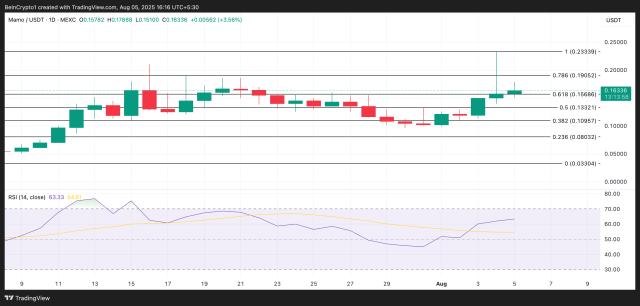A 70-year-old elderly man was scammed out of 3.27 million Hong Kong dollars in a late-life romance.
Author: 1912212.eth, Foresight News
As an Asian financial center and cryptocurrency hub, Hong Kong is facing significant challenges from crypto scams. In the first half of 2025, although the overall fraud losses decreased by 25% compared to the same period last year to around 2.8 billion Hong Kong dollars, cryptocurrency-related cases still account for a significant proportion. According to police data, the number of crypto-related fraud cases increased in the first five months of 2025, with victims primarily being young and middle-aged investors, influenced by cross-border scams from mainland China and local platform vulnerabilities. Crypto scams take various forms, including investment frauds, money laundering gangs, and social media inducements, with total losses already exceeding hundreds of millions of dollars.
Based on recent reports, Foresight News has compiled some typical crypto scam cases in Hong Kong from 2024 to date, aiming to reveal patterns and provide warnings.
70-Year-Old Elderly Man Scammed Out of 3.27 Million Hong Kong Dollars in Late-Life Romance
According to the Hong Kong Commercial Daily, a 70-year-old retired man received a message on WhatsApp in late April from someone claiming to be his "female neighbor," stating that his unit was leaking water. Later, the other party apologized for mistaking the phone number. They continued chatting on WhatsApp and developed an online romantic relationship, though the victim had never met the other person.
By mid-May, the woman claimed to work at a Singapore exchange and have insider information about cryptocurrency investments, promising lucrative returns. Using sweet talk like "You know I have feelings for you," "You must listen and cherish me," and "I can't help it, since I met you," she persuaded the victim to transfer money for investment. Under her persuasion, the male victim withdrew cash from ATMs 37 times between May 23 and July 16, transferring a total of 3.27 million Hong Kong dollars to 34 bank accounts provided by the woman. When the victim tried to withdraw large amounts of cash at the bank due to ATM withdrawal limits, bank staff noticed something unusual and notified the anti-fraud coordination center, ultimately exposing the scam. The victim not only lost over 3.27 million Hong Kong dollars but also incurred nearly a million dollars in debt.
The police stated on the "CyberDefender" Facebook page that they received nearly 20 online romance investment fraud cases in the past two weeks, with 40% of victims over 60 years old, totaling over 10 million Hong Kong dollars in losses. The police once again reminded citizens to be cautious of online romance scams.
Clicking on False Links on Telegram, Consecutive Fraud Resulting in Losses Exceeding 4 Million
According to Hong Kong 01, in July this year, a local woman with over 10 years of cryptocurrency asset investment experience fell into two fraud traps after failing to apply for a promotion on a virtual asset platform. She searched for "customer service" on Telegram and ended up losing over 4 million Hong Kong dollars in cryptocurrency. The police reminded citizens to contact customer service through official channels and never click on unknown links or reveal personal account passwords and verification codes.
The police explained that the female victim had over 10 years of cryptocurrency asset investment experience. After failing to apply for a promotion on a virtual asset platform and not receiving an immediate response from official customer service, she searched for "customer service" on Telegram and contacted an account that appeared official. The other party claimed they could help and sent an unknown link. The victim clicked the link without suspicion and entered her "personal information," "account number," and "transaction password" as instructed. When she logged into her virtual asset account again, she discovered some assets had been transferred, realizing she had been scammed.
Afterward, the victim found another "customer service" account on Telegram, which claimed to help recover the stolen virtual currency. She fell for it again, entering personal information on a fake website, resulting in the remaining virtual assets being transferred. She was scammed twice, losing over 4 million Hong Kong dollars in total.
Deceiving to Gain Trust with "Counterfeit Banknotes," Involving 11 Million
In July 2024, according to SCMP, Hong Kong police arrested four people, including a 14-year-old teenager, in a crackdown on a criminal gang suspected of fraud using counterfeit banknotes, involving cryptocurrency worth 11 million Hong Kong dollars (1.4 million US dollars). The police stated that two of the four suspects were masterminds responsible for finding counterfeit banknotes, creating fake cryptocurrency trading stores, and seeking victims online.
They invited victims to their stores, showing stacks of counterfeit banknotes to demonstrate their ability to easily settle transactions. After gaining the victims' trust, they persuaded them to trade online. Once the cryptocurrency was transferred, the suspects immediately moved the assets from the accounts and refused to pay. This method has been common in recent cases, with 14 people arrested since October last year for defrauding 12 victims of 11 million Hong Kong dollars.
Romance Script Chat + Deepfake Learning Technology Video Call Fraud, Involving 34 Million
In January this year, according to Phoenix News, Hong Kong police cracked down on a fraud group that used deepfake technology to lure people into investing in virtual currencies through social platforms, involving approximately 34 million yuan. The Hong Kong Police Commercial Crime Unit arrested 31 people in two industrial buildings in Kowloon Bay based on intelligence, aged between 20 and 34, with some claiming to be students or unemployed, all part of the same fraud group, and seized their pre-prepared "scripts".
The Hong Kong Police stated that the group would recruit young people wanting to "make quick money", training them to create accounts on dating platforms with false identities, pretending to have good looks and luxurious lifestyles, connecting with people from overseas including Taiwan and East Asia regions, and chatting according to the "script". After understanding the other party's background, they would cater to their interests and develop into online romantic partners, even using deepfake technology for video calls, then luring the target to invest in virtual currencies, claiming significant returns, and requesting deposits into fake platforms. The group would immediately transfer the virtual currencies and cut off contact with the victims.
In October 2024, Hong Kong police dismantled a local fraud group, arresting 27 people. During their approximately one-year operation, they were suspected of defrauding multiple local and overseas victims, with total stolen funds reaching 360 million yuan. The fraud group primarily used online romance tactics to lure victims into investing in cryptocurrencies.
With countless fraud methods, one can truly protect their wallet only by not being blinded by emotions, not being greedy for small gains, not easily trusting strangers' remittance or transfer requests, and being cautious when clicking links, otherwise regrets will be inevitable.
Disclaimer: As a blockchain information platform, the articles published on this site represent only the personal views of the authors and guests, and are unrelated to Web3Caff's stance. The information in the articles is for reference only, does not constitute any investment advice or offer, and readers should comply with relevant laws and regulations in their country or region.








